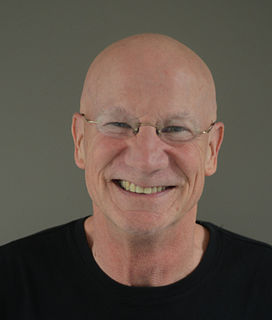A Quote by Aimee Mullins
You know, I think there are certain words like 'illegitimate' that should not be used to describe a person. And certainly, we have come far enough in our technology that our language can evolve, because it has an impact.
Related Quotes
I've spent years studying words. Linguistics, language, the power of words, the power of phrases on human beings. All of that. It's part of my, almost obsessive, fascination. It turns out that there are some keys that we all need to know about how conversations impact us, because they do at a chemical level. There are certain things that if we learned this, it would totally change our interactions with others, and that's the following. There are certain words that have a feeling of, "I love you, I care for you, you're in my tribe."
Embedded in every technology there is a powerful idea, sometimes two or three powerful ideas. Like language itself, a technology predisposes us to favor and value certain perspectives and accomplishments and to subordinate others. Every technology has a philosophy, which is given expression in how the technology makes people use their minds, in how it codifies the world, in which of our senses it amplifies, in which of our emotional and intellectual tendencies it disregards.
There are all sorts of experiences we can't really put a name to...The birth of a child, for one. Or the death of a parent. Falling in love. Words are like nets--we hope they'll cover what we mean, but we know they can't possibly hold that much joy, grief, or wonder. Finding God is like that, too. If it's happened to you, you know what it feels like. But try to describe it to someone else--and language only takes you so far.
I certainly self-police my language depending on who I'm talking to. I try to be very careful about using filler words, about not drawling certain vowels, even when I can't say "drawl" without drawling. That's kind of sad, because self-policing inhibits communication. You're more focused on the words coming out of your mouth or that should not be coming out of your mouth than making a connection with the person you're speaking to.
I have used the words and expressions which my experiences from Minsk to Kharkov to the Don suggested to me. But I should have reserved those words and expressions for what came later, even though they are not strong enough. It is a mistake to use intense words without carefully weighing and measuring them, or they will have already been used when one needs them later. It's a mistake, for instance, to used the word frightful to describe a few broken up companions mixed into the ground: but it's a mistake that might be forgiven.
The First Amendment reads more like a dream than a law, and no other nation, so far as I know, has been crazy enough to include such a dream among its fundamental legal documents. I defend it because it has been so successful for two centuries in preserving our freedom and increasing our vitality, knowing that all arguments in support of it are certain to sound absurd.
Language changes. If it does not change, like Latin it dies. But we need to be aware that as our language changes, so does our theology change, particularly if we are trying to manipulate language for a specific purpose. That is what is happening with our attempts at inclusive language, which thus far have been inconclusive and unsuccessful.
Encourage others each and every day-nothing's more important than our words. Did you know that, on average, each of us speaks about twenty-five thousand words daily? My last book didn't have that many words. A lot of language is flowing out of our mouths every day and having an impact on those around us. But how much of that flow is fulfilling God's intended purpose for our speech? How much of it reflects pride, rather than a gospel-motivated humility?
When we can't hold back, or set boundaries, on what comes from our lips, our words are in charge-not us. But we are still responsible for those words. Our words do not come from somewhere outside of us, as if we were a ventriloquist's dummy. They are the product of our hearts. Our saying, "I didn't mean that," is probably better translated, "I didn't want you to know I thought that about you." We need to take responsibility for our words. "But I tell you that men will have to give account on the day of judgment for every careless word they have spoken" (Matt. 12:36).






































